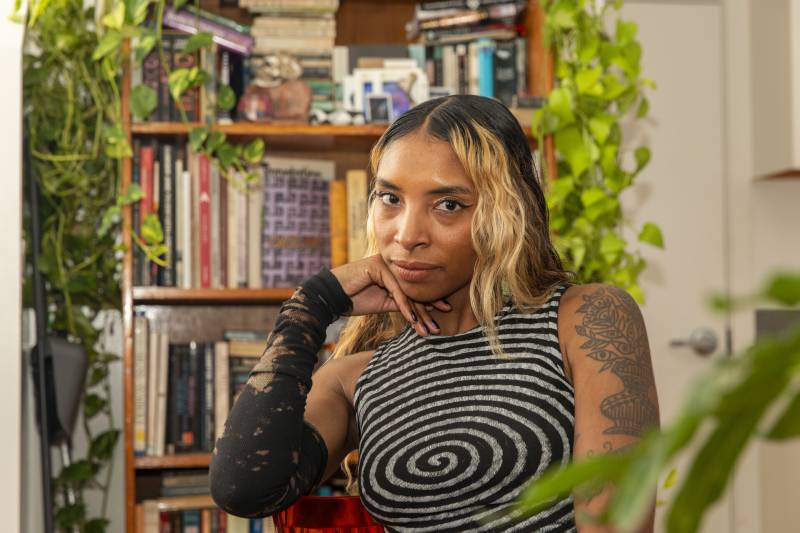With algorithms constantly quantifying our tastes and habits, it’s freeing to remember that little is truly known about some dimensions of the human experience. SPELLLING turns to her most trusted divination tools to tap into the spiritual realm: her synthesizer, her tarot cards and her intuition.
Since her critically acclaimed 2017 debut Pantheon of Me, SPELLLING, born Chrystia Cabral, has evolved from a singer-songwriter into a bandleader and producer with her own cosmography. With the help of her mega-talented live band, her new album SPELLLING & the Mystery School (out today via Sacred Bones) reimagines beloved tracks from Pantheon, 2018’s haunting Mazy Fly and her most ambitious project yet, 2021’s dark, orchestral The Turning Wheel.
To celebrate, on Sept. 16 Cabral is throwing a mini festival after hours at Oakland’s 73-year-old theme park, Children’s Fairyland. The enchanted evening is fittingly titled Through the Looking Glass, and features performances by Afrofuturist ensemble Sun Ra Arkestra, spiritual griot Laraaji, art rocker AroMa and more. Much like SPELLLING’s music, Cabral’s curation flows through styles and eras, paying homage to the lineage of Black artists who use fantasy to understand themselves and assert their place in the universe.
It’s certainly been a powerful tool for Cabral. “I struggled a lot through my youth with coping and being in an awkward position as a biracial, mixed, weird, freaky person and growing up in the suburbs in Sacramento,” she says. “I lived in an internal world.”

Now, Cabral has evolved from a shy kid into a musician captivating international audiences without sacrificing her unorthodox vision. “Something that I can 100% stand by is that you can radically reshape who you are and what you want to do with fantasy,” she reflects.





